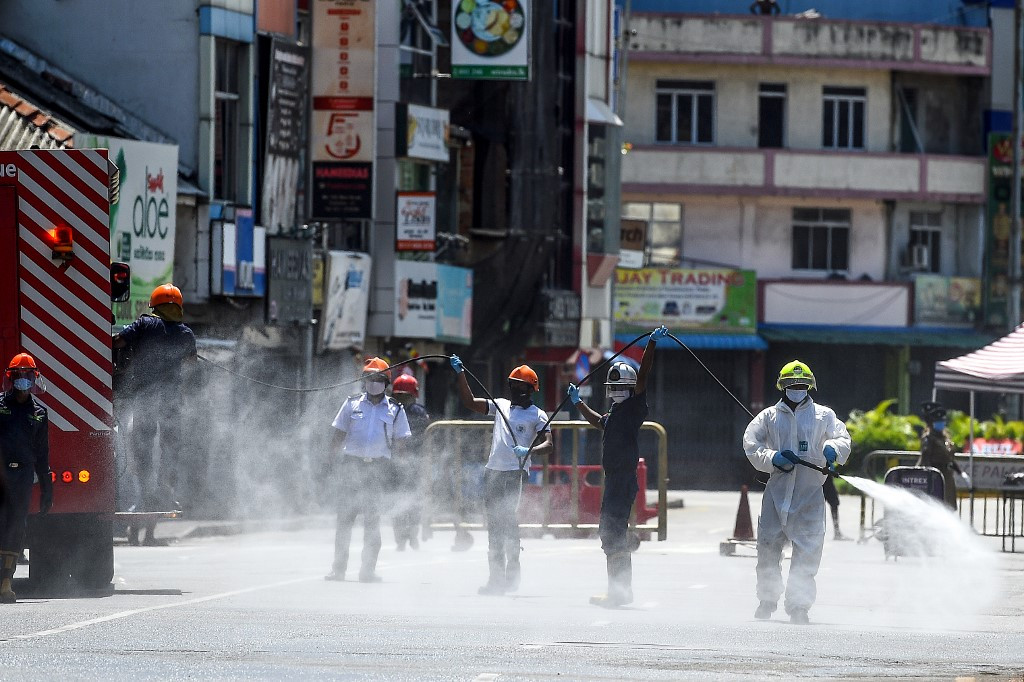Popular Reads
Top Results
Can't find what you're looking for?
View all search resultsPopular Reads
Top Results
Can't find what you're looking for?
View all search resultsSpraying disinfectants can be 'harmful', says WHO
Change text size
Gift Premium Articles
to Anyone
S
praying disinfectant on the streets, as practiced in some countries, does not eliminate the new coronavirus and even poses a health risk, the World Health Organization (WHO) warned on Saturday.
In a document on cleaning and disinfecting surfaces as part of the response to the virus, the WHO says spraying can be ineffective.
"Spraying or fumigation of outdoor spaces, such as streets or marketplaces, is... not recommended to kill the COVID-19 virus or other pathogens because disinfectant is inactivated by dirt and debris," explains the WHO.
"Even in the absence of organic matter, chemical spraying is unlikely to adequately cover all surfaces for the duration of the required contact time needed to inactivate pathogens."
The WHO said that streets and pavements are not considered as "reservoirs of infection" of COVID-19, adding that spraying disinfectants, even outside, can be "dangerous for human health".
The document also stresses that spraying individuals with disinfectants is "not recommended under any circumstances".
"This could be physically and psychologically harmful and would not reduce an infected person’s ability to spread the virus through droplets or contact," said the document.
Spraying chlorine or other toxic chemicals on people can cause eye and skin irritation, bronchospasm and gastrointestinal effects, it adds.
The organisation is also warning against the systematic spraying and fumigating of disinfectants on to surfaces in indoor spaces, citing a study that has shown it to be ineffective outside direct spraying areas.
"If disinfectants are to be applied, this should be done with a cloth or wipe that has been soaked in disinfectant," it says.
Read also: Mass disinfections to combat coronavirus pose another health hazard
The SARS-CoV-2 virus, the cause of the pandemic that has killed more than 300,000 people worldwide since its appearance in late December in China, can attach itself to surfaces and objects.
However, no precise information is currently available for the period during which the viruses remain infectious on the various surfaces.
Studies have shown that the virus can stay on several types of surfaces for several days. However, these maximum durations are only theoretical because they are recorded under laboratory conditions and should be "interpreted with caution" in the real-world environment.











